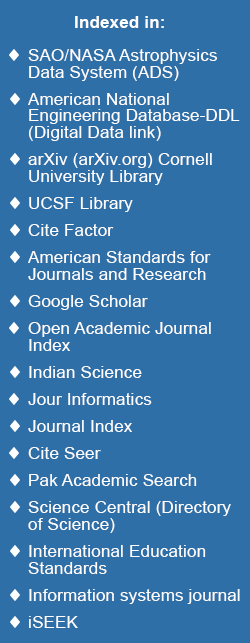ISSN : 2349-3917
American Journal of Computer Science and Information Technology
Abstraction: Simplifying Complexity in Software Engineering
Joseph Thomsen*
Department of Computer Science, University of Oslo, Oslo, Norway
- *Corresponding Author:
- Joseph Thomsen
Department of Computer Science,
University of Oslo, Oslo,
Norway,
Email: josephthomsen67@hotmail.com
Received date: March 06, 2023, Manuscript No. IPACSIT-23-16778; Editor assigned date: March 08, 2023, PreQC No. IPACSIT-23-16778(PQ); Reviewed date: March 22, 2023, QC No. IPACSIT-23-16778; Revised date: March 29, 2023, Manuscript No. IPACSIT-23-16778 (R); Published date: April 05, 2023, DOI: 10.36648/ 2349-3917.11.4.3
Citation: Thomsen J(2023) Abstraction: Simplifying Complexity in Software Engineering. Am J Compt Sci Inform Technol Vol: 11 No: 4: 003.
Introduction
Abstraction is a fundamental concept in software engineering that allows developers to manage the complexity of systems by focusing on essential features while hiding unnecessary details. This research article explores the concept of abstraction, its significance in software development, and its practical applications in creating scalable and maintainable software solutions. Abstraction provides a powerful tool for managing complexity in software development. It involves identifying and emphasizing essential features while suppressing or hiding unnecessary implementation details. By creating higher-level representations, developers can work with simpler and more comprehensible models. Abstraction operates at multiple levels in software engineering. At the highest level, architectural abstractions define the overall structure and organization of a system. This includes the identification of components, their interactions, and the allocation of responsibilities. At lower levels, design abstractions help in defining the structure and behavior of individual modules or classes. These abstractions encapsulate implementation details, allowing developers to focus on functionality and relationships.
Bene its of Abstraction
Abstraction provides several benefits in software engineering. It simplifies the development process by breaking down complex systems into manageable components. By hiding unnecessary details, abstraction reduces cognitive load and enhances comprehensibility, making it easier to reason about and maintain code. Abstraction also promotes code reuse, as higher-level representations can be utilized in different contexts. This leads to increased productivity and efficiency by eliminating the need to reinvent the wheel for common functionalities. Abstraction finds numerous practical applications in software development, enabling developers to create scalable and maintainable solutions. Abstraction is a core principle of OOP. By using classes and objects, developers can create abstract representations of real-world entities, focusing on their essential characteristics and behaviors. Abstraction is achieved through the use of abstract classes, interfaces, and abstract methods, which define common behavior and provide a blueprint for concrete implementations. Data abstraction involves defining the essential properties and operations of data structures while hiding the implementation details. It allows developers to create higher-level data types tailored to specific needs. Encapsulation, a related concept, encapsulates data and the methods that operate on it into cohesive units, ensuring data integrity and modularity.
Software Libraries and APIs
Abstraction is vital in the design of software libraries and Application Programming Interfaces (APIs). These abstractions provide high-level functionalities and services, shielding users from complex implementation details. Libraries and APIs offer a simplified interface that developers can leverage to build applications without needing to understand the underlying complexities. Abstraction is a fundamental concept in software engineering that helps manage complexity by focusing on essential features while hiding unnecessary details. It provides benefits such as simplifying development, enhancing comprehensibility, promoting code reuse, and facilitating scalability and maintainability. By employing abstraction techniques, developers can create higher-level representations, whether in architectural design, object-oriented programming, data structures, or software libraries. These abstractions enable the creation of scalable and maintainable software solutions, empowering developers to tackle complex problems effectively while managing complexity. Understanding and leveraging abstraction principles are key skills for software developers, enabling them to design elegant and robust systems that are adaptable to changing requirements and can withstand the test of time.

Open Access Journals
- Aquaculture & Veterinary Science
- Chemistry & Chemical Sciences
- Clinical Sciences
- Engineering
- General Science
- Genetics & Molecular Biology
- Health Care & Nursing
- Immunology & Microbiology
- Materials Science
- Mathematics & Physics
- Medical Sciences
- Neurology & Psychiatry
- Oncology & Cancer Science
- Pharmaceutical Sciences
